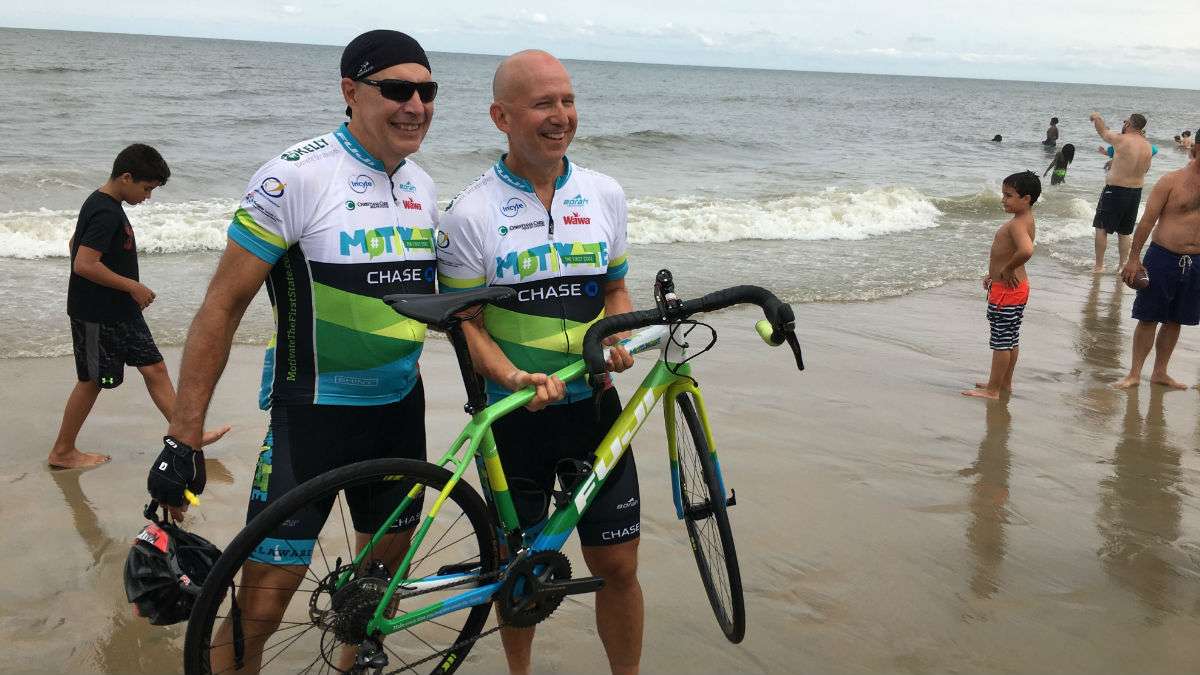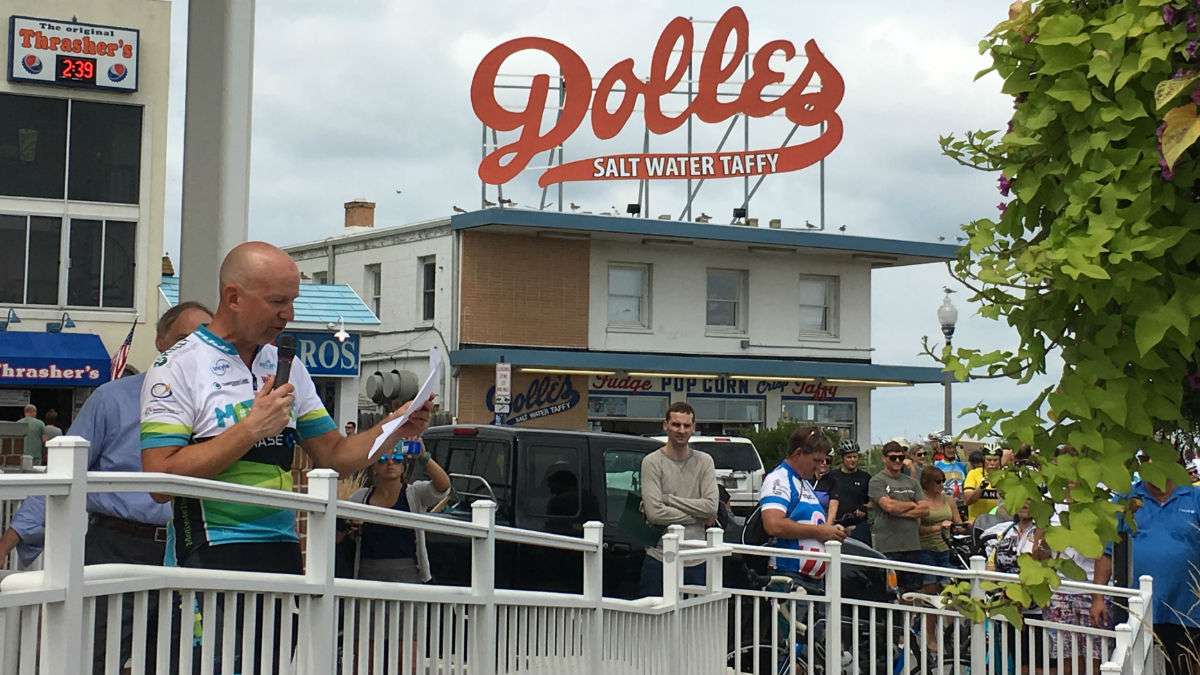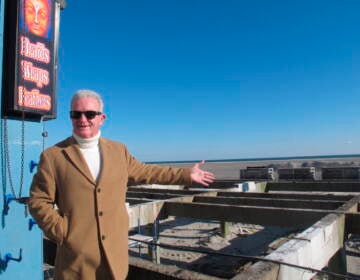Battle over dune ‘lagoons’ in Margate lands in federal court
Margate, New Jersey, residents already had easy access to the Atlantic Ocean and the back bay.
Now they have another body of water in town, thanks to the construction of new protective sand dunes on the beach.
“It’s like having a polluted lake in my backyard. And surrounded by that are rusty pipes and construction equipment,” said Margate resident Helene Swirsky-Hulse.
In recent weeks, residents and beach-goers have witnessed giant pools of water form on the Margate beach. They consist of mostly rainwater and runoff trapped between the dunes and the town’s wooden bulkhead running alongside beachfront homes.
City officials say it is not only a recreational eyesore but also poses a risk to public health and safety.
“It should not exist. It should not exist for an hour,” said Gary Brown, an environmental engineer with RT Environmental, in federal court in Camden Wednesday.
Margate is suing the Army Corps of Engineers over what officials say is a half-mile-long lagoon laden with bacteria. City officials also contend the ponded water on the beach could present a drowning danger for young children.
Last week, New Jersey Judge Julio Mendez put a temporary stop to the dune project, halting operations through Friday in hopes that the two sides could work out a plan to remove the ponded water and prevent it from happening again to that degree.
But the Army Corps of Engineers challenged that ruling in federal court, claiming Mendez did not have jurisdiction over the federal agency.
Beyond the jurisdictional issues, however, Army Corps officials said the ponded water on the beach was simply a result of building the dunes.
Army Corps engineer Andrew Schwaiger admitted that the level of ponding was more substantial than he expected, but added that the fact that water was pooling between the dunes and the bulkhead was not unusual. He said a similar condition occurred during a project in nearby Sea Isle City, but residents there “didn’t complain about it. I think they understood it was part of the construction process.”
Pools’ depth poses problem for machinery
When water pools, Army Corps contractors pump it from the ponds into the ocean, but only after the giant puddles have had the chance to dissipate for 24 to 36 hours. Even then, the machinery cannot pump below 4 inches of water because the tubes will get clogged by sand.
That can leave the shore dotted with long stretches of water a few inches deep, which environmental expert Gary Brown said turn into hotbeds for bacteria in a matter of hours.
Also in attendance in federal court Wednesday were members of the Margate City Beach Patrol. They said at least three lifeguards got skin rashes after walking through the ponded water in the course of their duties. “My legs broke out in a pretty crazy rash,” said lifeguard Kyle Fader, “and it started spreading to other parts of my body.”
Although the plaintiffs did not provide medical evidence tying the ponded water directly to the skin ailments, Brown said elevated bacteria levels at one of the ponds showed readings 20 times the limit for enterococcus and 37 times the limit for fecal coliform.
Judge Renee Marie Bumb promised to rule on the matter soon. Because the same case is being considered in both federal and state courts at the same time, it is unclear what a ruling in one venue would mean for the other.
Army Corps officials, who say the work stoppage is costing taxpayers $120,000 per day, said finishing the full dune system will put an end to the problem of ponded water.
Vacationers, economy feeling pinch
Agency contractors are also building sand walkways through the ponds so beach-goers can still dip a toe in the ocean without first trudging through a pond.
Still, Margate residents say news coverage of problems with the project, a string of beach closures, and the unsightly appearance of the beach have had a negative impact on the town’s reputation. Witnesses testified that tourism is suffering because of the beachfront ponds.
Paul Vanderijn runs Jack and Jill Ice Cream, which has a contract to sell the frozen treat on the beach in Margate. Vanderijn testified that revenue through the end of July was half of what it was the same time last year. “We’ve now hit the worst-case scenario,” he said.
WHYY is your source for fact-based, in-depth journalism and information. As a nonprofit organization, we rely on financial support from readers like you. Please give today.













